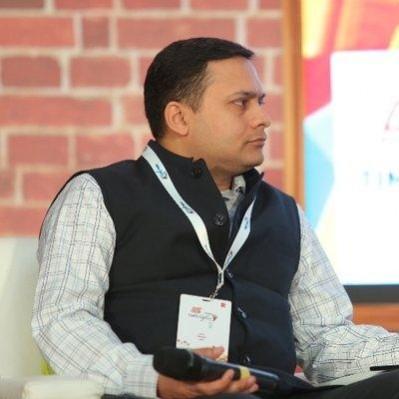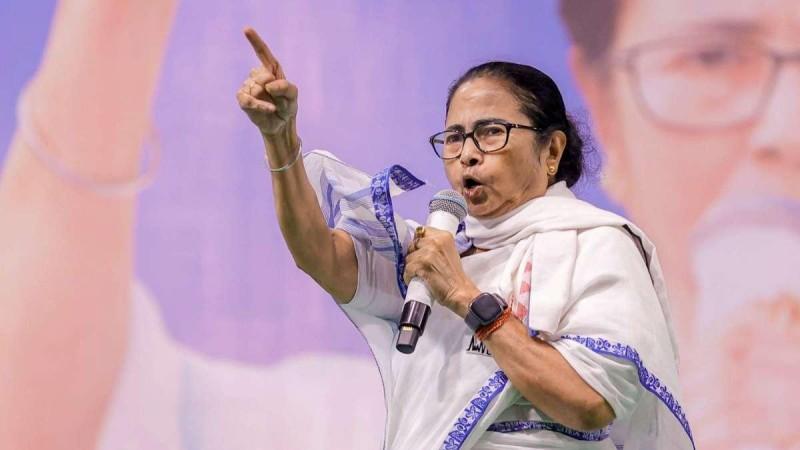
Amit Malviya, a key figure in the Bharatiya Janata Party (BJP), has recently intensified the political discourse in West Bengal by leveling serious accusations against Chief Minister Mamata Banerjee. On Sunday, Malviya outlined eight reasons why he believes Banerjee is a significant supporter of illegal infiltrators, particularly targeting Bangladeshi nationals and Rohingyas. He also accused her of being an "ardent admirer of the Urdu language."
Malviya asserts that Banerjee has openly expressed a desire to see Prime Minister Narendra Modi and Home Minister Amit Shah arrested, highlighting the intense political rivalry between the BJP and Banerjee's Trinamool Congress (TMC). This rivalry has been a defining feature of West Bengal's political landscape, with both parties frequently clashing over various issues.
A significant point in Malviya's statement is the 2014 incident where the TMC's official social media page shared a report from a Bangladeshi news outlet that purportedly gave the party a "clean chit." According to Malviya, this move indicates Banerjee's alleged support for illegal infiltration. He further highlights Banerjee's affinity for the Urdu language, pointing out her decision to officially declare Urdu as the second language of West Bengal and introduce special scholarships to promote Urdu language education.

Mamata Banerjee's Alleged Affinity and Political Moves
Malviya also references Banerjee's announcement of a special allowance for Imams and the establishment of the Urdu Academy in the state in 2014. He claims these actions demonstrate her special affinity towards a particular community and the language popular among them. Furthermore, Malviya accuses Banerjee of threatening the Prime Minister in 2014, asserting that he had no right to expel Bangladeshis from West Bengal. This statement, according to Malviya, is yet another example of Banerjee's alleged support for illegal infiltrators.
In 2017, Banerjee reportedly raised her voice in support of the Rohingya, a move that Malviya claims is part of her strategy to change the demography of Bengal. "Bengalis must stay alert," his statement warns, suggesting that Banerjee's actions could have long-term implications for the state's demographic composition. Malviya's observations come in the wake of a social media spat between him and Banerjee. The Chief Minister had earlier posted on social media, referring to findings by Human Rights Watch (HRW), a New York-based multi-country NGO, which she claimed authenticated her point on alleged harassment of Bengali-speaking people in BJP-ruled states.
Malviya responded by accusing Banerjee of inviting foreign intervention in India's internal matters and claimed that she was echoing narratives pushed by organizations like HRW, which he described as having an anti-India bias. The political tension between Malviya and Banerjee is not an isolated incident. It reflects a broader pattern of political conflict in India, where allegations of foreign intervention and support for illegal activities are often used as political weapons.
In another statement, Malviya criticized the opposition to the Special Intensive Revision (S.I.R.) by parties like the TMC, claiming that it echoed narratives by certain foreign bodies. He described the S.I.R. as a constitutional exercise aimed at ensuring a clean, transparent, and accurate voter list, and accused foreign-funded NGOs of attempting to influence India's democratic processes.
"No foreign-funded NGO or politically motivated lobby will dictate how India protects its democracy," Malviya asserted, drawing parallels to past instances where foreign influence was alleged in Indian politics. Malviya's statements also touch upon the development of the Association for Democratic Reforms (ADR), which moved the Supreme Court expressing doubts over the S.I.R. He claimed that ADR's actions had a common thread with Banerjee's reference to the HRW report, suggesting a coordinated effort to undermine India's democratic institutions.
"What's the common thread? ADR has received massive funding from the Omidyar Network and Ford Foundation, both known for financing political influence operations across developing democracies," Malviya stated, further alleging that these organizations were working in tandem with Soros's Open Society Foundation. The allegations against Banerjee have sparked a political storm in West Bengal, with both the BJP and TMC engaging in a war of words. The BJP has called for Banerjee to be held accountable for her alleged actions, while the TMC has dismissed the allegations as baseless and politically motivated.



!['Valentine's Week in Parliament'? : Saugata Roy, June Malia's cosy conversation amid house session goes viral [Watch] 'Valentine's Week in Parliament'? : Saugata Roy, June Malia's cosy conversation amid house session goes viral [Watch]](https://data1.ibtimes.co.in/en/full/828484/valentines-week-parliament-saugata-roy-june-malias-cosy-conversation-amid-house.jpg?w=220&h=135&l=50&t=40)






!['Valentine's Week in Parliament'? : Saugata Roy, June Malia's cosy conversation amid house session goes viral [Watch]](https://data1.ibtimes.co.in/en/full/828484/valentines-week-parliament-saugata-roy-june-malias-cosy-conversation-amid-house.jpg?w=220&h=135)

